AI for Content Creation In today’s digital age, content creation has become a cornerstone for businesses, influencers, and digital marketers alike. The demand for high-quality, engaging, and consistent content is at an all-time high. However, producing such content regularly can be both time-consuming and resource-intensive. Enter AI for content creation—a game-changing technology that is revolutionizing the way we create and manage content.
- What is AI for Content Creation?
- The Rise of AI in Content Creation
- Benefits of Using AI for Content Creation
- How AI is Changing Different Types of Content Creation
- Challenges and Ethical Considerations
- Best Practices for Using AI for Content Creation
- Future of AI for Content Creation
- FAQs About AI for Content Creation
- FOR NEXT BLOG CLICK
What is AI for Content Creation?
AI for content creation refers to the use of artificial intelligence technologies to generate, curate, and optimize content. This can include anything from blog posts and social media updates to videos, graphics, and even audio content. AI-driven tools can analyze vast amounts of data, understand context, and create content that is both relevant and engaging.
The Rise of AI in Content Creation
The concept of AI for content creation is not entirely new. However, recent advancements in machine learning, natural language processing (NLP), and data analytics have made AI more accessible and effective for content creation. Tools like GPT-4, for instance, can generate human-like text that is almost indistinguishable from content written by a person.
Benefits of Using AI for Content Creation
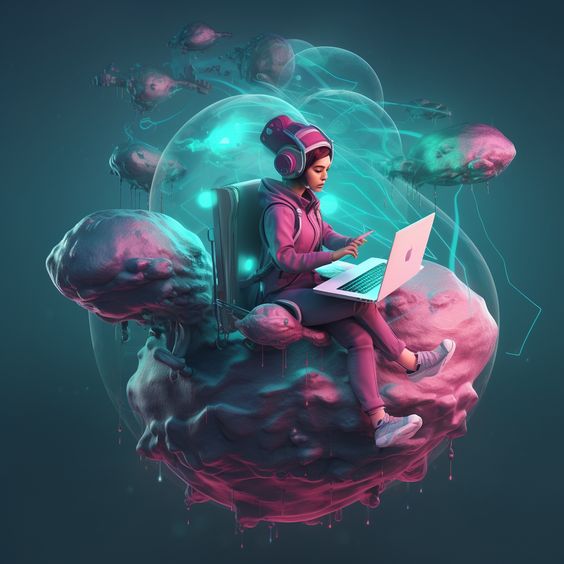
1. Time Efficiency
One of the most significant advantages of using AI for content creation is the time it saves. Traditional content creation processes involve brainstorming, drafting, editing, and finalizing the content. AI can automate many of these steps, allowing content creators to focus on strategy and creativity.
2. Consistency and Quality
Maintaining a consistent tone and style across different pieces of content can be challenging. AI tools can help ensure that the content is not only consistent but also of high quality. By analyzing past content, AI can learn the preferred style and replicate it across various formats.
3. Data-Driven Insights
AI can analyze vast amounts of data to identify trends, keywords, and topics that resonate with your audience. This data-driven approach ensures that your content is relevant and optimized for search engines, increasing its chances of reaching a broader audience.
4. Cost-Effectiveness
Hiring a team of writers, editors, and content strategists can be expensive. AI for content creation offers a cost-effective alternative, allowing businesses to produce high-quality content without breaking the bank.
5. Scalability
Whether you need to produce content for a single blog or manage multiple content channels, AI can scale your content creation efforts efficiently. AI tools can generate large volumes of content in a fraction of the time it would take a human team.
How AI is Changing Different Types of Content Creation
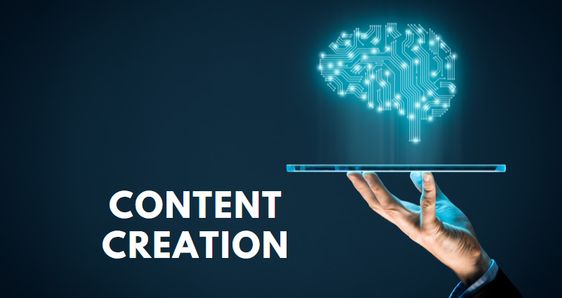
1. Blog Writing
AI-powered tools like GPT-4 can generate well-researched and SEO-optimized blog posts. By understanding the context and analyzing relevant data, AI can create blog posts that are engaging and informative. For example, if you’re writing about AI for content creation, the tool can analyze existing content on the topic and generate a unique, comprehensive post.
2. Social Media Content
Creating engaging social media content requires a deep understanding of your audience and the platform. AI tools can analyze audience behavior, trending topics, and platform-specific nuances to generate posts that are more likely to engage and convert.
3. Video Content
AI is also making its mark in video content creation. From generating video scripts to editing footage, AI tools can streamline the entire video production process. Tools like Lumen5 can turn blog posts into engaging video content by analyzing the text and selecting relevant visuals and animations.
4. Graphics and Design
AI-driven design tools like Canva are making it easier for non-designers to create professional-quality graphics. These tools can suggest design elements, color schemes, and layouts based on the content and brand guidelines.
5. Audio Content
Podcasting and audio content are growing in popularity. AI tools like Descript can transcribe, edit, and enhance audio content, making it easier for creators to produce high-quality podcasts and audio clips.
Challenges and Ethical Considerations

While the benefits of AI for content creation are undeniable, there are also challenges and ethical considerations to keep in mind.
1. Quality Control
While AI can generate content quickly, it may not always meet the desired quality standards. It’s essential to have a human review process in place to ensure that the content aligns with your brand voice and messaging.
2. Plagiarism Concerns
AI tools can inadvertently generate content that closely resembles existing work. To avoid plagiarism, it’s crucial to use plagiarism detection tools and ensure that the content is unique.
3. Ethical Use
The rise of AI for content creation also raises ethical questions about the role of human creativity. While AI can assist in the content creation process, it’s important to strike a balance between automation and human input to maintain authenticity.
4. Dependence on AI
Relying too heavily on AI for content creation can lead to a loss of originality and creativity. While AI can handle repetitive tasks, it’s essential to keep the creative process human-centered.
Best Practices for Using AI for Content Creation
To make the most of AI for content creation, it’s important to follow best practices:
1. Combine AI with Human Creativity
While AI can handle the heavy lifting, the creative direction should come from humans. Use AI as a tool to enhance your content, not replace human creativity.
2. Regularly Update Your AI Tools
AI technology is constantly evolving. Regularly updating your AI tools ensures that you are using the latest features and capabilities to create high-quality content.
3. Monitor Performance
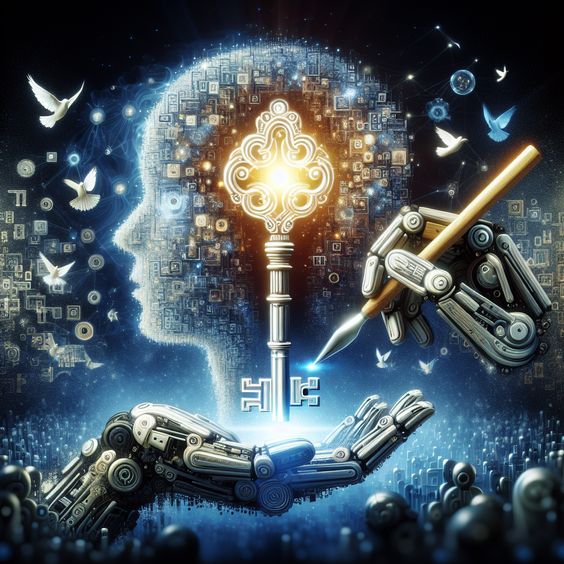
Use analytics to monitor the performance of AI-generated content. This data can help you refine your content strategy and make informed decisions about where and how to use AI.
4. Maintain Transparency
If you’re using AI to generate content, be transparent with your audience. This builds trust and ensures that your audience is aware of how the content was created.
Future of AI for Content Creation
The future of AI for content creation is promising. As AI technology continues to evolve, we can expect even more sophisticated tools that can handle complex content creation tasks. In the coming years, AI could become an integral part of every content strategy, enabling businesses and creators to produce more personalized and engaging content at scale.
FAQs About AI for Content Creation
1. What is AI for content creation?
AI for content creation refers to the use of artificial intelligence technologies to generate, curate, and optimize various forms of content, including text, video, graphics, and audio. AI tools can analyze data, understand context, and create content that is both relevant and engaging, often with minimal human intervention.
2. How does AI improve the content creation process?
AI improves the content creation process by automating repetitive tasks, providing data-driven insights, and ensuring consistency and quality. It can save time, reduce costs, and scale content production while maintaining a consistent brand voice across different platforms.
3. Can AI replace human content creators?
While AI for content creation is powerful, it cannot completely replace human creativity. AI can handle repetitive tasks and generate content based on data, but human input is still crucial for creative direction, storytelling, and maintaining authenticity.
4. Is AI-generated content original?
AI-generated content can be original, but there is a risk of unintentional plagiarism if the AI tool pulls too closely from existing content. It’s important to use plagiarism detection tools and review AI-generated content to ensure its uniqueness.
5. What types of content can AI create?
AI can create various types of content, including blog posts, social media updates, video scripts, graphics, and audio content. Different AI tools specialize in different forms of content, allowing creators to generate everything from written text to visual designs and multimedia content.
6. How can I ensure the quality of AI-generated content?
To ensure the quality of AI-generated content, it’s important to have a human review process in place. Regularly monitor the content’s performance using analytics, and make adjustments as needed. Combining AI with human creativity ensures that the content is both high-quality and aligned with your brand’s voice.
7. What are the ethical considerations when using AI for content creation?
Ethical considerations include maintaining transparency with your audience about AI’s role in content creation, avoiding over-reliance on AI to ensure originality, and addressing concerns about AI’s impact on human creativity and jobs.
8. How does AI help with SEO in content creation?
AI tools can analyze search engine algorithms, identify trending keywords, and optimize content for SEO. By using AI for content creation, you can ensure that your content is not only engaging but also ranks well on search engines, increasing its visibility.
9. Are there any risks associated with using AI for content creation?
The main risks include potential quality issues, plagiarism concerns, and over-reliance on AI, which could lead to a loss of originality and creativity. It’s important to balance AI use with human oversight to mitigate these risks.
10. What are some popular AI tools for content creation?
Popular AI tools for content creation include GPT-4 for text generation, Lumen5 for video content, Canva for graphic design, and Descript for audio content. Each tool offers different features tailored to specific content needs, making them valuable assets for content creators.
Conclusion
AI for content creation is revolutionizing the way we approach content strategy, production, and optimization. From saving time and resources to ensuring consistency and quality, AI offers a wealth of benefits for content creators. However, it’s essential to use AI responsibly, balancing automation with human creativity to maintain authenticity and originality.

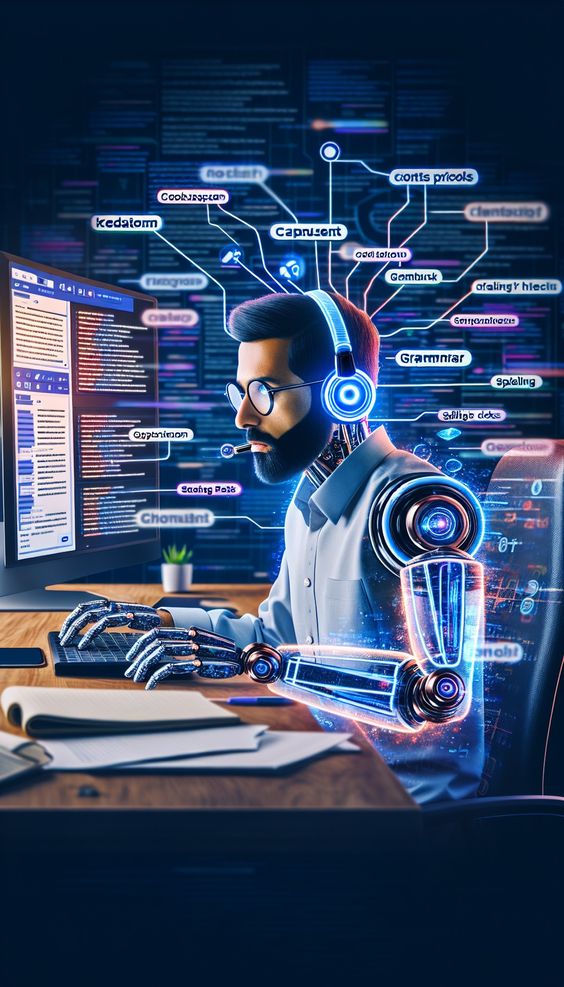
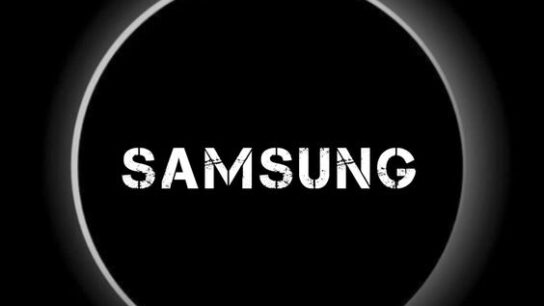


[…] for next post click here […]